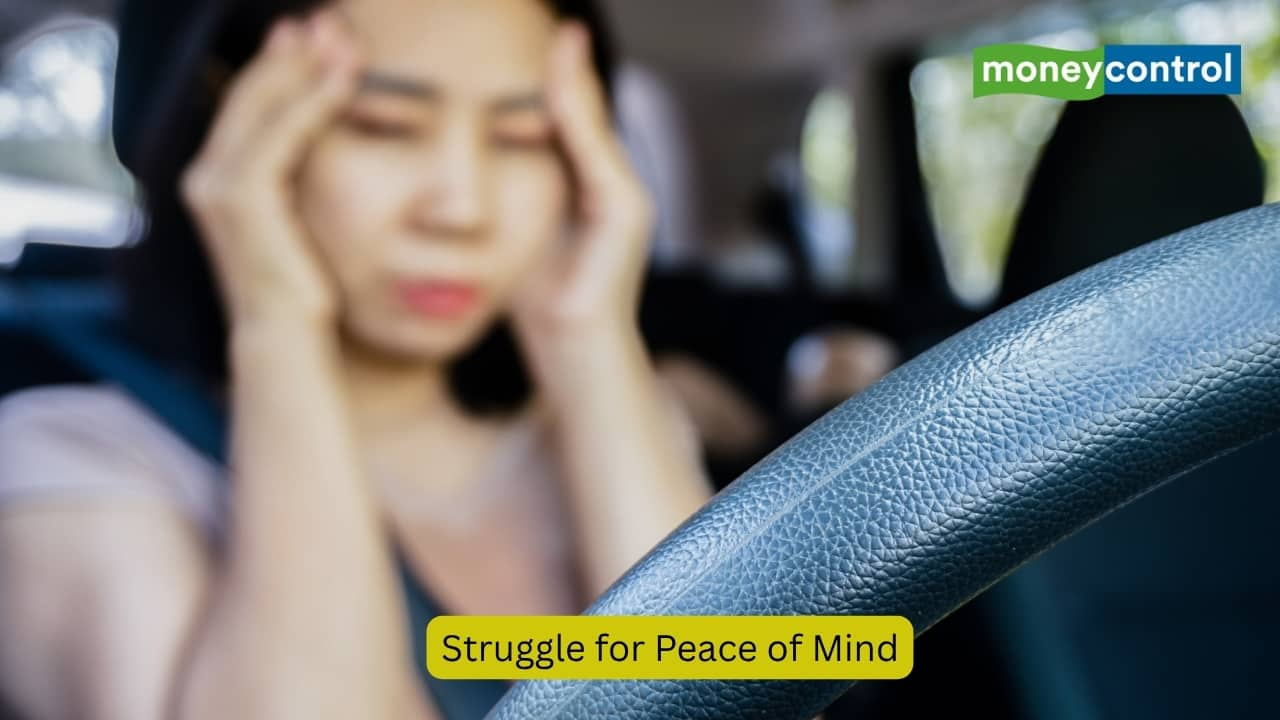
The Struggle for Peace of Mind
From getting agitated in heavy traffic to snapping at the smallest inconvenience, peace of mind today feels like a distant dream. Life’s pace, screens, and social pressure keep our minds constantly on edge. Everyone — from children to adults — seems to be under pressure. “We’re seeing stress and anxiety surface at much younger ages now,” says Dr Astik Joshi, Consultant Child, Adolescent & Forensic Psychiatrist, Fortis Healthcare, Delhi. "Children face huge academic pressure, while adults juggle work demands and social expectations. But calm is a skill that can be learned through simple daily habits", he tells Moneycontrol. (Image: Canva)
Maintain a Daily Routine
A consistent schedule brings predictability and structure, reducing chaos. Fixed meal and sleep times, plus short relaxation breaks, help both children and adults feel more grounded. “Consistency gives the mind a sense of control — something anxiety often takes away,” says Dr Joshi. (Image: Canva)
Make Movement a Priority
Physical activity releases endorphins — your body’s natural mood boosters. Even 30 minutes of walking, dancing, or yoga can improve focus and mood. It also promotes better sleep — a key factor in managing anxiety. (Image: Canva)
Eat for Your Mood
What you eat affects how you feel. A diet rich in fruits, vegetables, whole grains, and proteins supports better mental health, while processed foods and caffeine can worsen anxiety. Add omega-3 sources like fish, flaxseeds, and walnuts for extra brain support. (Image: Canva)
Stay Connected
Human connection is one of the strongest protectors against anxiety and depression. Spend time with friends, family, or even neighbours — meaningful conversations can lift mood and reduce loneliness. (Image: Canva)
Focus on Mental Wellbeing
Writing a journal, talking to a therapist, or simply expressing emotions helps reduce inner stress. Encouraging children to share their feelings builds emotional awareness early on. (Image: Canva)
Practise Yoga and Mindfulness
Ten minutes of mindfulness, meditation, or breathing daily can calm the body’s stress response. These practices improve focus, emotional control, and resilience. (Image: Canva)
Step Outdoors
Nature has quite a healing power. Sunlight boosts serotonin, while time outdoors lowers anxiety. Try gardening, cycling, or walking barefoot on grass — simple acts that reset the mind. (Image: Canva)
Prioritise Sleep
“Sleep and mental health are deeply interconnected,” says Dr Joshi. Avoid screens at night, maintain regular hours, and create a cool, dark room to recharge your brain. Aim for 7–8 hours of restful sleep. (Image: Canva)Disclaimer: This article, including health and fitness advice, only provides generic information. Don’t treat it as a substitute for qualified medical opinion. Always consult a specialist for specific health diagnosis.
Discover the latest Business News, Sensex, and Nifty updates. Obtain Personal Finance insights, tax queries, and expert opinions on Moneycontrol or download the Moneycontrol App to stay updated!









